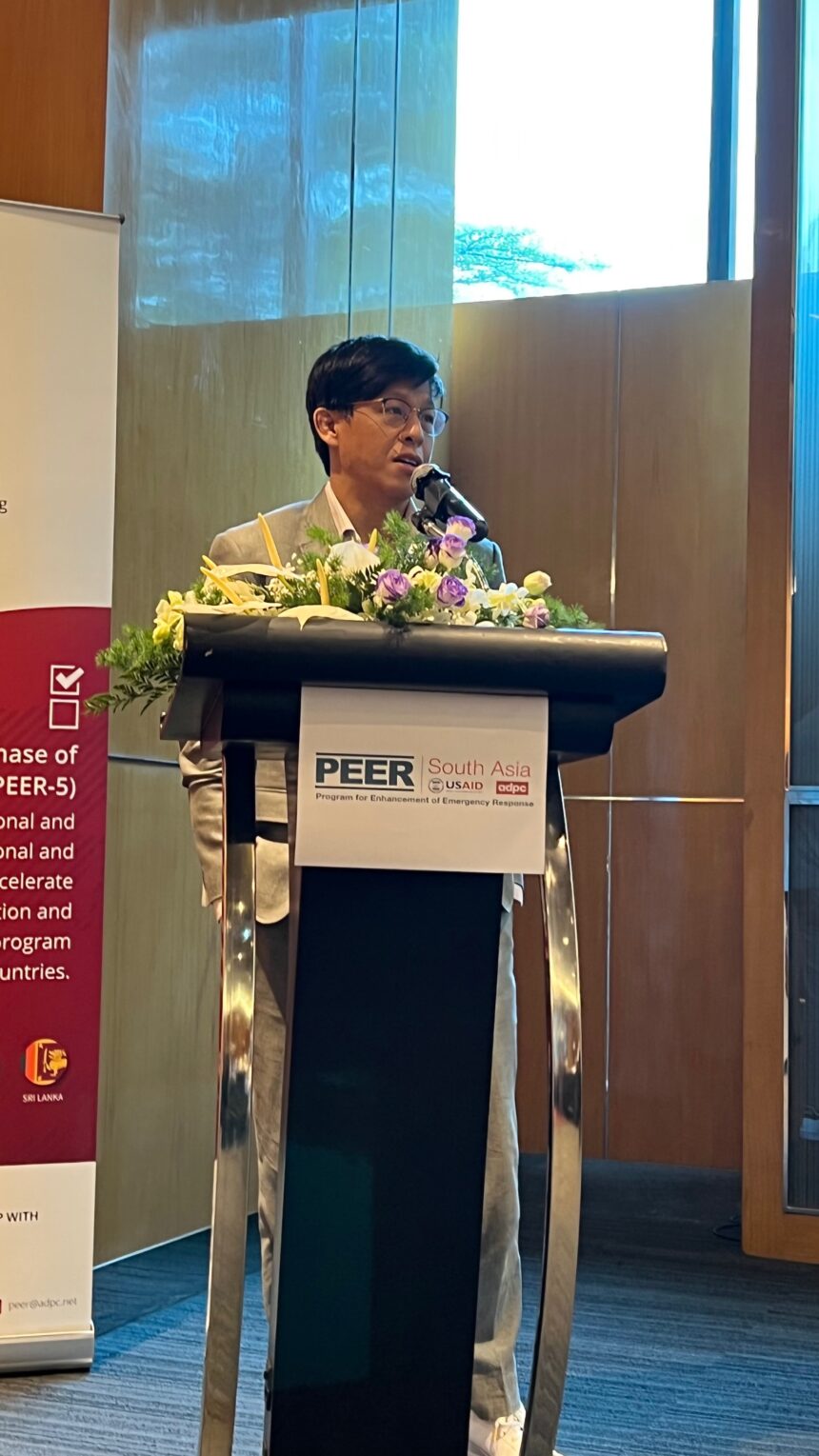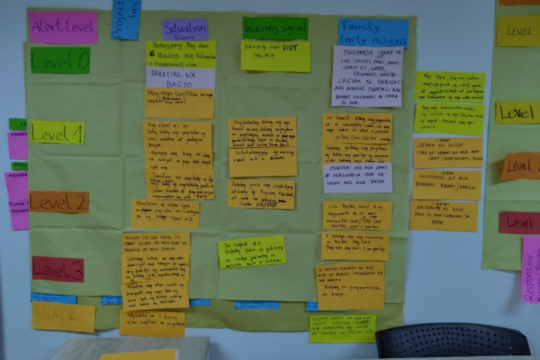The Asian Disaster Preparedness Center (ADPC), through its Program for Enhancement of Emergency Response (PEER), organized the Second Regional Program Advisory Committee (PAC) Meeting from 25-26 August 2022 in Bangkok, Thailand. PEER implementing partners from Bangladesh, India, Pakistan, Nepal, Sri Lanka, and the Maldives joined the conversation to foster partnerships among countries to enhance emergency response.
The discussion aimed at promoting regional cooperation in undertaking emergency preparedness and response, and developing a strategic approach to strengthen collaboration on PEER institutionalization.
Since the beginning of Stage 05 of the PEER in 2019, partner countries have demonstrated steady progress in integrating the PEER curriculum and methodology. The meeting provided an opportunity for PAC members to learn from each other’s challenges and successes while enhancing cooperation.
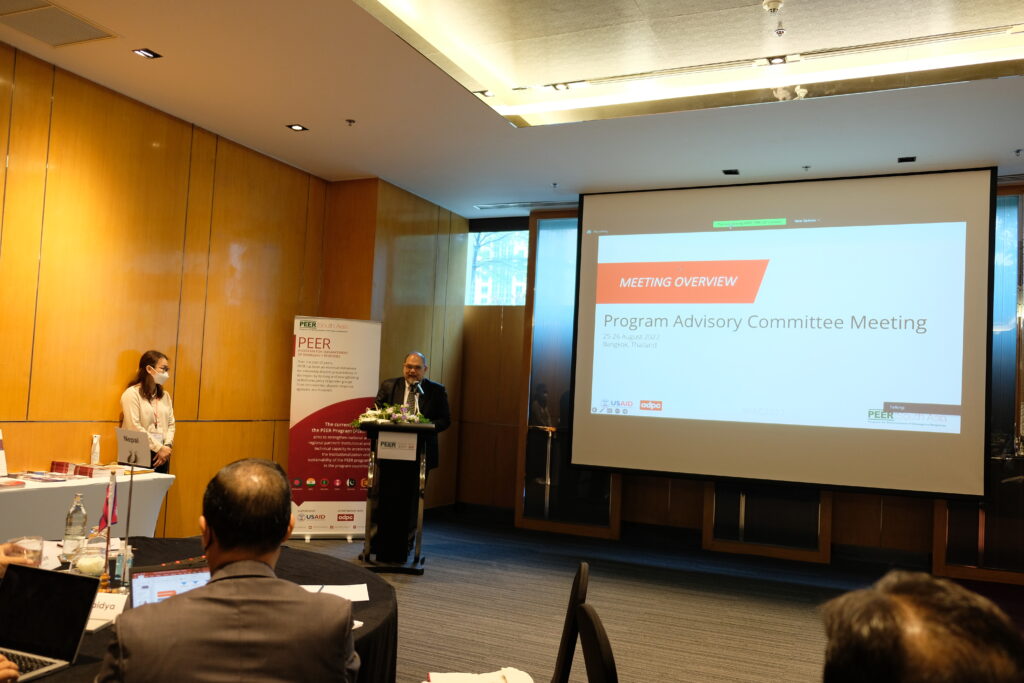
The first PAC meeting was conducted virtually in August 2021 and provided an opportunity for the countries to assess the status and map key PEER institutionalization elements using the assessment tool. The assessment provided useful information to review where the country is situated, looking at the nine essential conditions of institutional integration and sustainability of PEER courses with implementing institutions.
The tool guides the partners to critically analyze issues that affect countries’ progress in embedding PEER curricula and strategize on approaching stumbling blocks.
Unpacking Institutionalization
First day of the discussion started with highlights from the national institutionalization strategies from the partner countries. Representatives from the nodal agencies of each country walked through the current progress on embedding PEER and the identified priority actions on the way forward to achieve institutionalization.
Md. Atiqul Huq, Director General, Department of Disaster Management (DDM), Bangladesh emphasized that maintaining a database of PEER-trained personnel has been an important approach for the country to deploy volunteers during emergencies. While in India, “Active adoption of MFR and CSSR has enabled the National Disaster Response Force (NDRF) to retain its core competence and function effectively,” Mr. Kuldip Singh, DRM Specialist at ADPC said while recounting PEER’s contribution to building the capacity of responders.
On the road to accredit PEER courses, Dr. Prof. Pradeep Vaidya, Asst. Dean at the Institute of Medicine, Nepal (IOM) highlighted the country’s plan to cascade the HOPE training to the districts as the National Health Training Center recognizes the curriculum at both the central and provincial levels. Similarly, “the National Vocational and Technical Training Commission in Pakistan also accredited the curriculum of CADRE, MFR, and CSSR”, as highlighted by Ms. Roqiya Javed, Controller of Examinations at Punjab Emergency Services Department (PESD) Rescue 1122.

Sri Lanka, and the Maldives as the new entrants to the PEER family expressed the zeal to integrate PEER into their DRR strategies. Maj. Gen. Sudantha Ranasinghe, Director General, Disaster Management Centre (DMC) reiterated the need to engage the media and private sector to raise awareness of PEER. Ms. Safeena Hassan, Secretary General of National Disaster Management Authority, Maldives added, “We require technical support from PEER to identify entry points for integration.”
Demonstrating Success in Institutionalizing PEER
On the second day of the consultation, countries recalled how PEER instrumented disaster preparedness in the region, as all the countries presented the journey of PEER integration. Representatives from PEER technical and implementing partners elaborated on how PEER has transformed disaster reforms in their respective institutes through the PEER training standards and methodology.

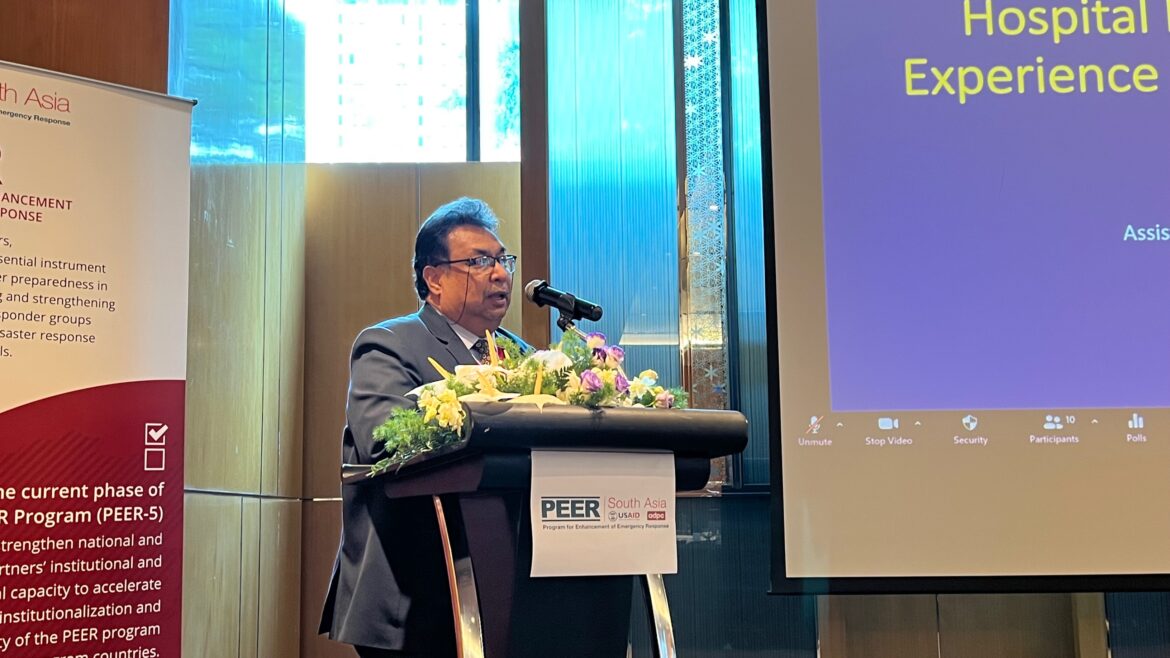
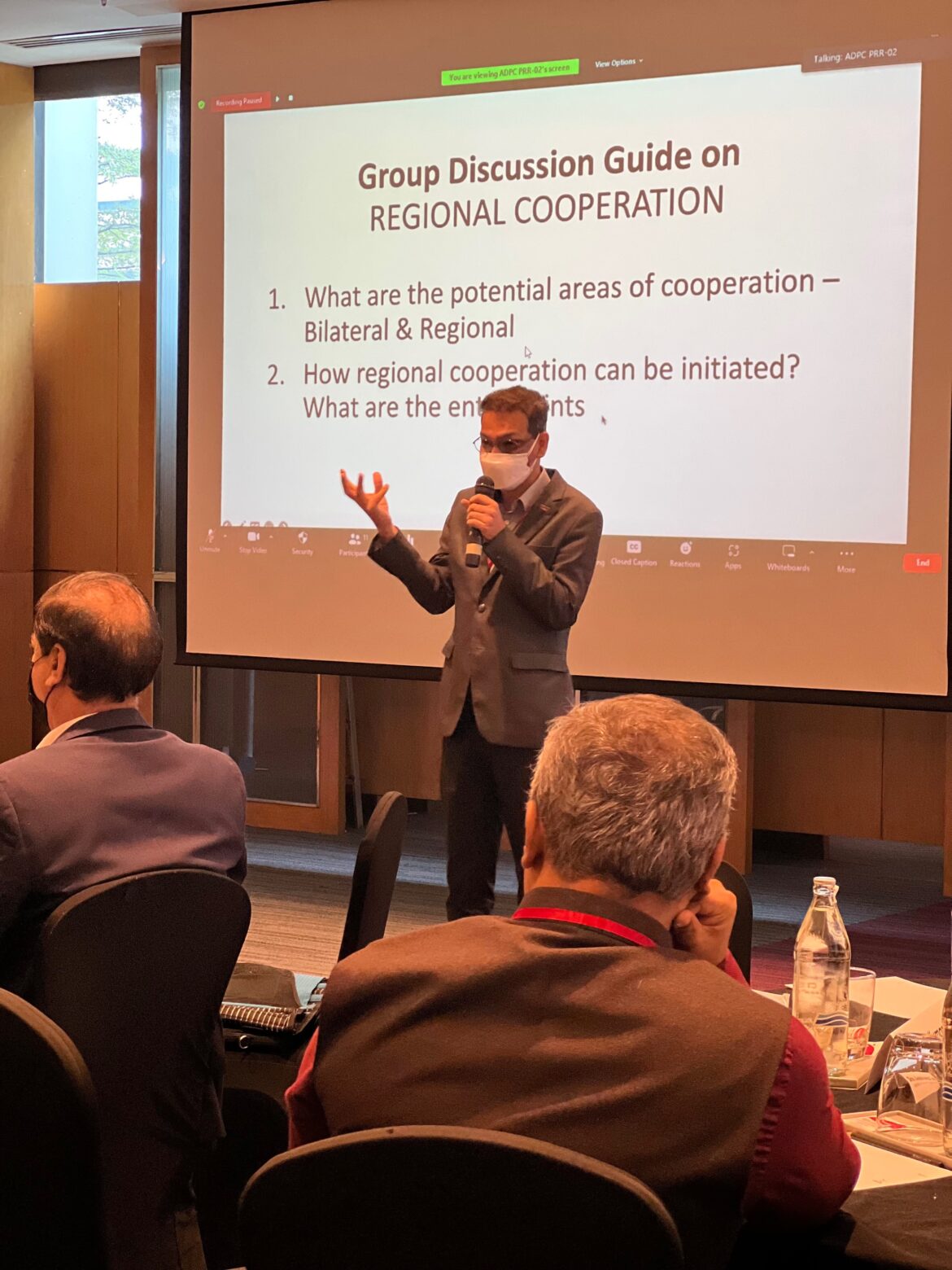
Mr. Sisira Madurapperuma, Director, ADPC envisioned the next level of PEER institutionalization from the country level to the regional. “We need to brainstorm and identify entry points to promote bilateral and regional partnerships on enhancing emergency response.”
Mr. Dustin Shiau, Senior Regional Program Officer from USAID Bureau for Humanitarian Assistance (BHA) emphasized navigating through the constantly changing dynamics of hazards and strengthening cooperation between countries to achieve resilience in the true sense. “Preparedness is a critical element which is less understood at the practical level. Countries can learn from each other’s experiences to enhance capacity-building strategies in their country.
The discussion ended with identifying the priority areas which require attention to achieve the common objective of PEER institutionalization and commitment to enhance coordination among partner countries.
